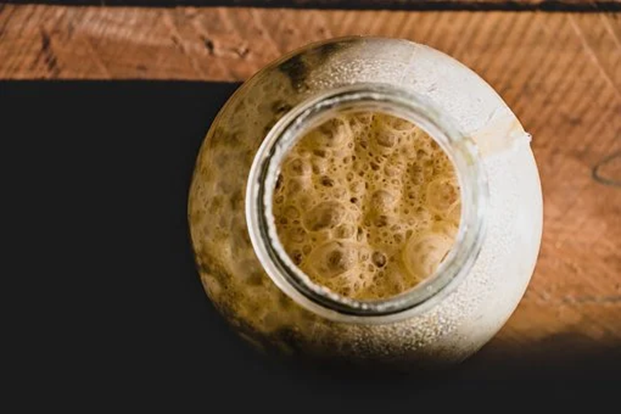Superfoods are all the rage. They’re an excellent way to support and boost your inner workings without taking over the counter medicines.
Many foods are seen as super. For instance, kale, chia seeds, quinoa, and blueberries are all high in nutritional value and boast an array of properties we may be lacking. However, one drink, in particular, is taking the internet by storm. Kombucha.
You may have seen this brightly colored juice sitting in the health food section of the supermarket. Many admit they give it a wide berth due to the sediments sitting at the bottom. That’s understandable, but it’s totally normal and is actually where all the good stuff is hiding.
Kombucha isn’t a new fad. In fact, it has a long and exciting history. This article will dive into the story behind this miracle elixir and explore its health benefits. Therefore, next time you grab one off the shelf or order yours online at Kombucha retailers like Where to buy Kombucha in Montreal, you’ll know what you’re buying.

The History of Kombucha
Kombucha’s exact origins are uncertain. Legend has it that its use dates back to 221 BC China during the Qin Dynasty.
It’s said that the emperor Qin Shi Huangdi wanted to improve his health and live longer. An alchemist formulated the juice, and it was soon dubbed the “remedy for longevity” and the “tea of immortality.”
Fast forward to around 410AD, and we have written proof of Kombucha in ancient Japanese scrolls. A Korean physician gifted the drink to the emperor Inyoko, who commended its sweet taste and health benefits. The elixir was then named after the doctor.
Kombucha became a staple drink of the samurais. They drank it to increase energy and strength. From here, it quickly made its way down the silk road, becoming popular in all of Asia and into Europe. Along the way, every culture has put its own spin on it.
20th Century
Kombucha was also widely used in Russia during WWI to treat soldiers’ wounds. After spotting this, a German Physician, Rudolf Sklenar, took it home to help treat cancer.
In mid-century Italy, Kombucha’s popularity crashed. The theory as to why isn’t 100% confirmed. However, it’s thought that people were stealing holy water to make it. They believed it made its qualities more potent. When the priests learned of this, they began preaching against the beverage.
Over the years that followed, its popularity waxed and waned. The 60s saw it relabeled as ‘Groovy Tea.’ In the 80s, it made a staggering comeback as a health drink due to the Chernobyl disaster.
It was discovered that many who drank Kombucha had fewer side effects from the radiation. As a result, this then inspired several studies into the drink’s radioprotective abilities. The theory was then proven further later in the 2011 Fukushima Nuclear plant incident.
Kombucha was then widely used to help alleviate the symptoms of chemotherapy. It’s still recommended today.

What is It Made of?
Kombucha’s base is made by fermenting tea, sugar, yeast, and SCOBY for up to 30 days. Many are under the misconception that SCOBY is a mushroom because it looks very similar to one. Scoby means a symbiotic culture of bacteria and yeast.
It’s often referred to as the ‘Mother’ as this is where the live cultures form the basis for all of the beverages’ health benefits.
Modern variants of the drink include juices, whole fruits, spices, and creative blends. You can make Kombucha into just about any flavor you desire.

The Health Benefits of Kombucha
It’s packed full of live cultures that are proven to support your digestion and immune system. Furthermore, the tea which Kombucha has within it is high in polyphenols. These antioxidants protect your cells. The fermentation process also triggers organic acids. In turn, they help to detoxify the liver and aid digestion.
Its probiotic effects will give your body a vitamin B boost that will reduce bloat and sluggishness and make you feel energized. Other ingredients like herbs, fruits, and berries will also carry their health benefits.
To Conclude
Kombucha is making headlines for its health benefits, and many entrepreneurs are jumping at the opportunity to brew and sell it. Don’t be fooled into thinking that it’s a fad to be skeptical about. The super drink has been around since what feels like the beginning of time and has proven its health value throughout the years.
However, this doesn’t mean you should go out and drink gallons of the stuff. Start with a small amount and see how your body handles it. Always remember that too much of a good thing can be bad, so don’t overdo it.
This is a Contributor Post. Opinions expressed here are opinions of the Contributor. Influencive does not endorse or review brands mentioned; does not and cannot investigate relationships with brands, products, and people mentioned and is up to the Contributor to disclose. Contributors, amongst other accounts and articles may be professional fee-based.

